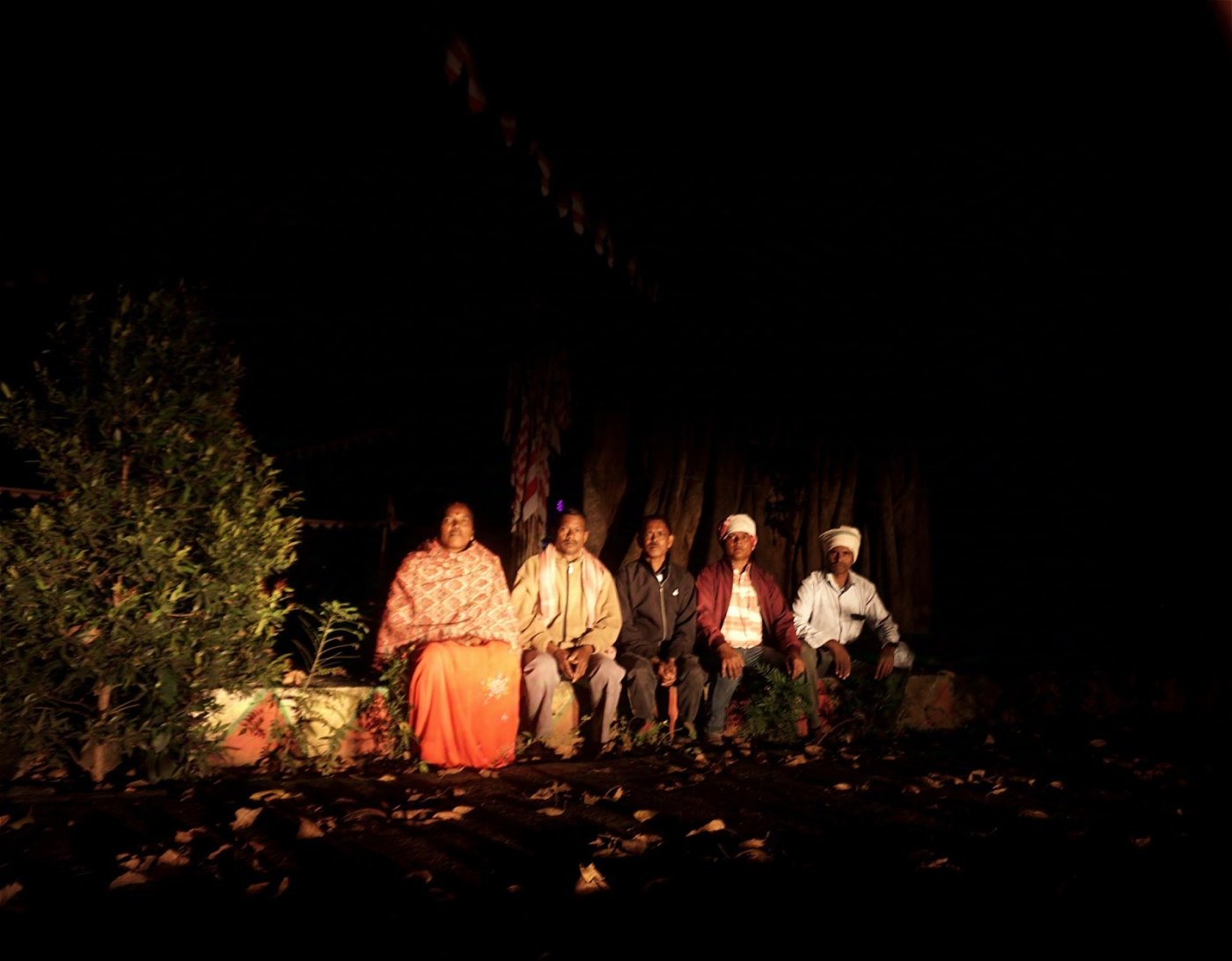
By Shamik Bag
Ranchi, Jharkhand: The gathering darkness could not hide the immensity of the old peepal tree under which 50-year-old Meena Devi led the chorus of a Sarna prayer. A deeply meditative and primeval hymn of the Sarna faith followed by nearly 5 million people from indigenous communities, most of them in the central Indian state of Jharkhand, the hymn was a prayer offered to the giant tree.
In Purio, a hamlet of the Oraon tribal community located about 30 km west of Jharkhand’s capital, male singers’ baritones joined Meena Devi’s razor-sharp wailing tone as white and red Sarna flags, representing purity and rebellion, fluttered in the precinct protected by wire-fencing, the Sarna Sthal or sacred grove.
Claimed to have been orally passed down from their forefathers and rendered in the Oraon language Kurukh, the hymn, Meena Devi explained, invoked all flora and fauna, sought forgiveness for human transgressions against nature, and thanked the “nature god” for jal, jangal and jameen (water, forests and land).
Belying the contemplative character of the evening’s ritual, the nature-worshipping faith of Jharkhand’s indigenous communities has, in recent years, created a deep schism in Jharkhand society and politics. The demand for recognition of the Sarna religion in the Census Of India, after the Hindu, Muslim, Christian, Buddhist, Jain and Sikh categories, has pitted the worship of nature against idolatry, tribal identity politics against majoritarian Hindutva.
Their common tradition of worshipping sacred groves and nature in general has brought Jharkhand’s main tribal communities, including the Santhal, Oraon, Munda and Ho, which together account for over 75 % of the population of the state’s 32 tribal groups, closer to the cause of a distinct Sarna religion enumerated in the Census. In November 2020, the Jharkhand legislative assembly, led by the Jharkhand Mukti Morcha (JMM) in its previous term, passed a unanimous resolution seeking enactment of the Sarna Adivasi Dharma Code Bill, or the Sarna code for short.
Nearly five million Indian tribals chose to register themselves as Sarna in the 2011 Census. Over 83% of these, or 4.1 million, were from Jharkhand, the rest being from states like West Bengal and Assam.
This story was originally published in article-14.com. Read the full story here.






